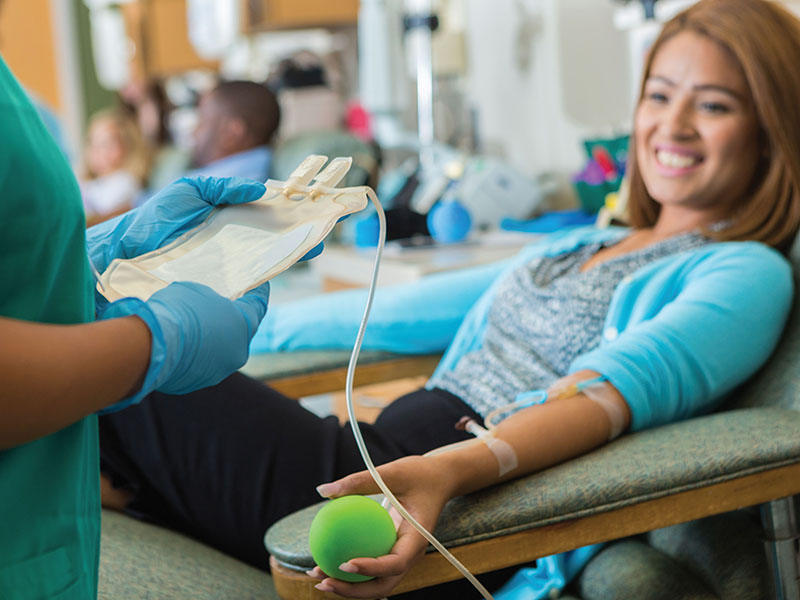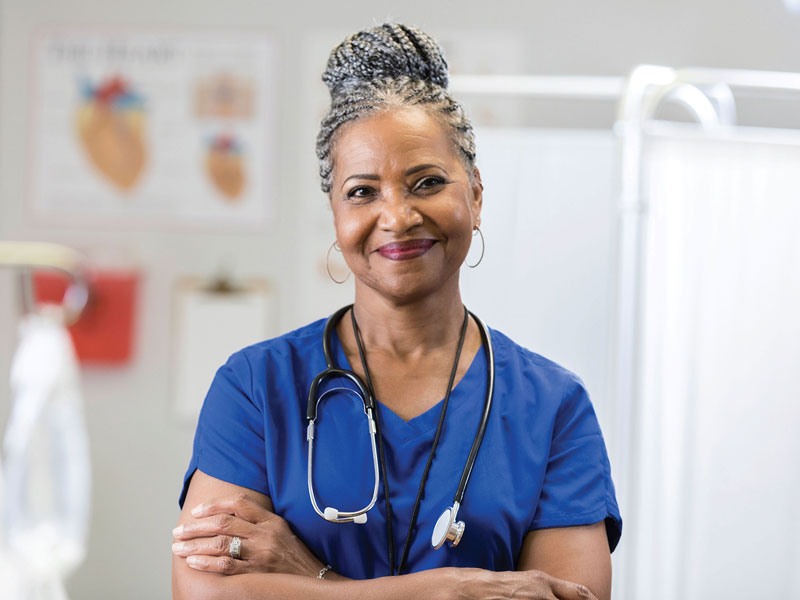Program Helps Communities to Bridge the Digital Divide in Clinical Care
Nurses and other members of the healthcare community have both the power and responsibility to reduce disparities in access to telehealth services, Mark Rastetter, MD, Cynthia J. Sieck, PhD, MPH, and Rose Grady, FNP, said during a session held at the ONS BridgeTM virtual conference on September 14, 2021. They shared their experience creating digital equity among patients using telehealth at Ohio State University’s (OSU’s) Wexner Medical Center.
- Read more about Program Helps Communities to Bridge the Digital Divide in Clinical Care
- Add new comment
Nursing Shortage Is a National Crisis, ANA Tells HHS

The nursing shortage has reached dire proportions and more needs to be done to ensure the United States has the nurses we need to care for the public, particularly during the COVID-19 pandemic, the American Nurses Association (ANA) said in a September 2021 letter to the U.S. Department of Health and Human Services (HHS) urging the agency to declare the shortage a national crisis and to take action against it.
Patient-Advocacy-Provider Partnerships and Networks Support Rare Cancer Research

My area of research focus is adults with primary central nervous system (CNS) tumors, which represent less than 2% of all diagnosed cancers. Because of the cancers’ rarity, access to diagnosed patients for research initiatives is limited. My team’s program, NCI-CONNECT, a part of the Rare Tumor Patient Engagement Network supported by the Cancer Moonshot, is advancing our understanding of adults with rare CNS cancers by establishing patient-advocacy-provider partnerships and networks to improve care and treatment approaches.
- Read more about Patient-Advocacy-Provider Partnerships and Networks Support Rare Cancer Research
- Add new comment
A Body of Evidence Helps Nurses Manage CAR T-Cell Therapy Toxicities

When chimeric antigen receptor (CAR) T-cell therapies were first approved for cancer in 2017, nurses didn’t have years of clinical practice experience with the treatment to understand its full scope of nursing implications yet. Now that nearly five years have passed—and new CAR T-cell therapies have been approved, bringing the total number of treatments to five as well—oncology nurses and nurse scientists have built a robust knowledge base.
Membership Dues Remain Level at $125 for 2022

Here are some of the highlights from the ONS Board of Directors’ monthly meeting on July 20, 2021. For a more complete list of the Board’s discussions and decisions, view the minutes online.
Nursing Has a Long History of Racism. Now Is the Time to Overcome It.
Across the United States, White citizens are experiencing an awakening, recognizing the systematic racism that bleeds into every fabric of life, from housing and grocery shopping to education and earning an income, affecting Black, Indigenous, and People of Color (BIPOC). The nursing profession is part of that awakening, Marcus Henderson, MSN, RN, lecturer from the University of Pennsylvania’s Department of Family and Community Health, said as he kicked off the second-annual ONS BridgeTM virtual conference on September 9, 2021, with a keynote session addressing racism in nursing and how nurse leaders and staff can mitigate workplace discrimination.
- Read more about Nursing Has a Long History of Racism. Now Is the Time to Overcome It.
- Add new comment
Follow the Evidence When Using Scalp Cooling for Cancer Alopecia
Scalp cooling, also known as cryotherapy, may reduce the risk of chemotherapy-induced alopecia (CIA) in patients with cancer, but how do you know if the therapy is right for your patients? According to speakers at an ONS BridgeTM virtual conference session on September 9, 2021, start with the evidence.
How One Organization Developed Tools to Predict Opioid Use Disorder Among Patients
Opioids are one strategy to help manage the cancer-related pain that nearly 75% of patients with cancer experience throughout the disease or its treatment. However, the prevalence of opioid misuse disorder (OUD) among patients with cancer is believed to be at least equal to that of the general population, Debra Rodrigue, MA, RN-BC, AOCNS®, explained during a session for the ONS BridgeTM virtual conference on September 9, 2021.
- Read more about How One Organization Developed Tools to Predict Opioid Use Disorder Among Patients
- Add new comment
Nurses Are Key to Patients Navigating Genitourinary Cancers
Nurses must serve as care coordinators for patients with genitourinary cancers because of the many tests, procedures, and self-care instructions they require, Clara Beaver, MSN, RN, AOCNS®, ACNS-BC®, and Joan Livingstone, BScN, RN, OCN®, both of Karmanos Cancer Institute at Wayne State University in Detroit, MI, said during a session at a ONS BridgeTM virtual conference on September 9, 2021. They emphasized the complexity of genitourinary cancers throughout diagnosis, treatment, and survivorship. Key nursing responsibilities include communicating with the care team, referring patients to other members of the interprofessional team, and advocating for patients’ needs.
Bridge Educational Gaps by Maximizing the Effectiveness of Your Virtual Programs
From elementary to college environments, virtual education is now commonplace, and, according to Jillian A. Russell, MSN, RN, NPD-BC, program manager at the Association for Nursing Professional Development, careful planning and creativity can make remote experiences just as—or even more—effective as traditional, in-person learning.





